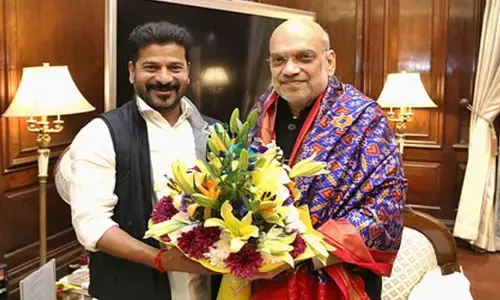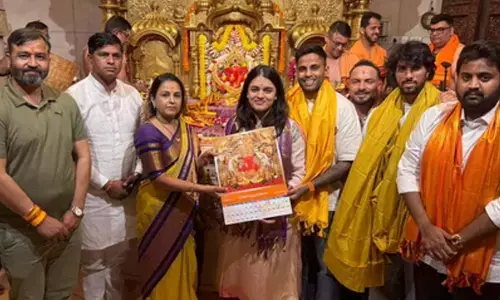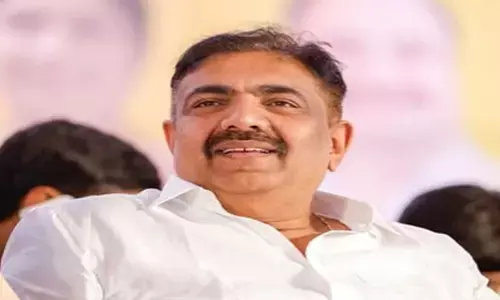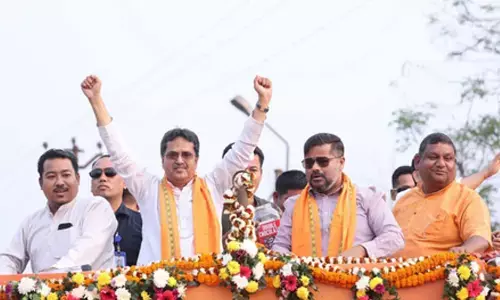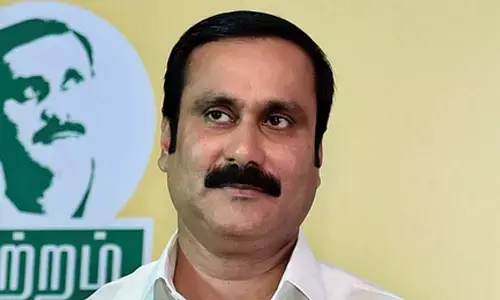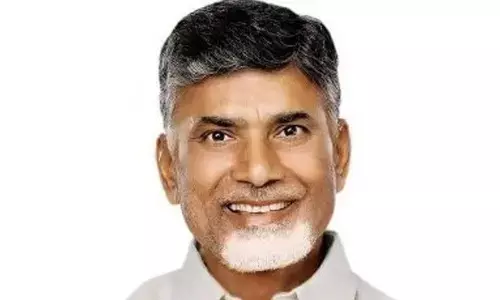Contemnor Bhushan doesn't deserve sympathy
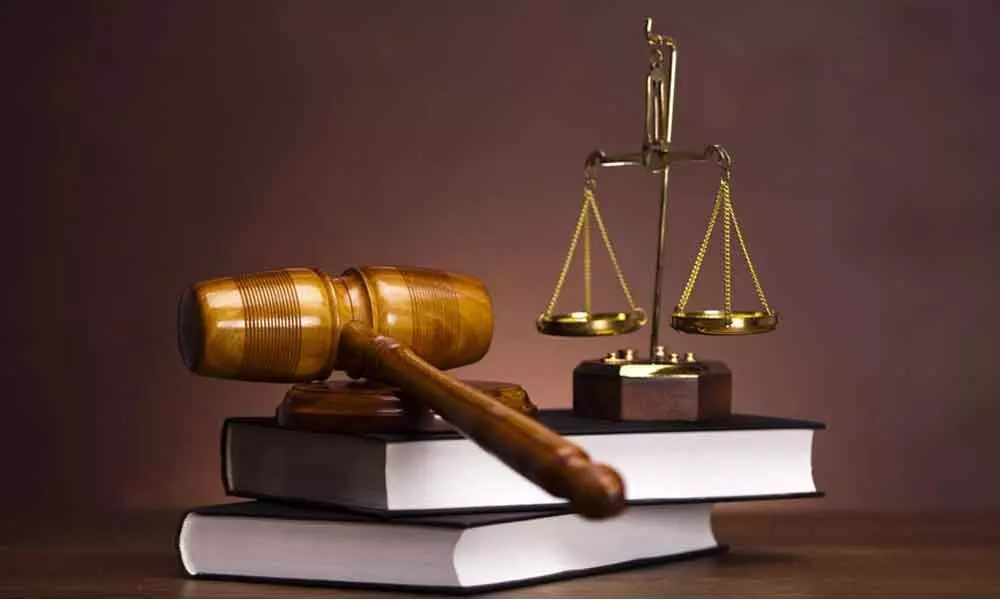
Contemnor Bhushan doesn’t deserve sympathy
The incorrigible contemnor Prashant Bhushan in his last ditch attempt tried to escape punishment by filing a petition in the apex court praying for the review of the yet to be pronounced judgment and seeking the transfer of the contempt case to another bench; but in vain
Hyderabad: The incorrigible contemnor Prashant Bhushan in his last ditch attempt tried to escape punishment by filing a petition in the apex court praying for the review of the yet to be pronounced judgment and seeking the transfer of the contempt case to another bench; but in vain.
A battery of lawyers and former judges took cudgels against the Supreme Court and sermonised in so many words about the loss of prestige of judiciary in the world. However, the Court did not buy their tirades and stood firm like a rock and refused to be brow-beaten by the groups of self-styled protectors of the rule of law and majesty of the courts.
No doubt, the apex court has shown magnanimity by asking the contemnor Prashnat Bhushan to reconsider his stand on the issue and pray for the mercy, but the adamant and arrogant Bhushan has stuck to his guns and refused to apologise. If Bhushan thinks that by invoking the name of Mahatma Gandhi, he would be regarded as his disciple by the people, he is sadly mistaken.
People of this country know it pretty well that Bhushan has a definite agenda to defame the judiciary, judges and thereby, the present day government. His links with Congress and Communists besides extremists and separatists elements are well known.
Therefore, like others of his ilk, he too had kept mum when Award Wapsi, Tukde-Tukde gangs and perpetrators of crime on Kashmiri Pandits raised anti-India slogans and incited violence.
The Criminal procedure Code (Cr.P.C) provides for giving an opportunity to the convict to put up his case with regard to quantum of punishment and pray to the court to show mercy or leniency.
It is strange that despite the contemnor in the present case pronouncing from the roof top that he was unrelenting and will never seek mercy from the court, the apex court thought it fit to 'advice' or 'suggest' to the said contemnor to reconsider his statement and tender un-conditional apology by August 24. Further, the Attorney General of India, who has no role in this suo motu contempt case, also appealed to the court for not sentencing the contemnor.
Thus, the sequences of events in the present case are quite baffling and disturbing. If at all the contemnor deserved so much sympathy, then the apex court ought to have taken his scanning attack on the integrity and honesty of judges with a pinch of salt instead of taking suo motu cognizance.
Similarly, one fails to understand whether the Attorney General appealed at the behest of the government or on his own. The million dollar question however, is whether similar sympathy would have been given by the apex court and the Attorney General, had there been any other ordinary person as a contemnor in place of Prashant Bhushan.
Indeed, Prashant Bhushan case offers an opportunity to the lawmakers and practitioners to ponder over the larger issue of maintaining dignity and majesty of the courts, who are saddled with the onerous task of ensuring the rule of law in any case, a Lakshman Rekha has to be drawn between the Bar and the Bench and any violation of this line of control should be made liable for stringent punishment. The present provision of 6 months of imprisonment is certainly not a deterrent.
• A gloomy day for AP High Court
The unprecedented situation developed in the High Court of Andhra Pradesh which is described by the court itself as gloomy. It is unfortunate that the High Court had to request the Supreme Court Judge to enquire into the conspiracy angle in which the needle of suspicion points to a retired Judge of the same Court besides other persons.
The conspiracy, it is alleged involves against the Chief justice of AP High Court and a sitting Judge of the Supreme Court. The inquiry to be conducted probably by Justice V Raveendran, retired Judge of the apex court is likely to stumble upon some frightening elements, according to reliable sources.
• Trial court's limitations in awarding life sentence
The Punjab and Haryana High Court in a recent Judgment reiterated that the trial court does not have power to impose life imprisonment on a convict without the provisions for remission and parole.
In a case, Savitri v. State of Haryana and others, a division bench comprising Justice S. Muralidhar and Justice Avneesh Jhingan referring to the citation of Union of India v. V Sridharan observed that only the High Courts and the Supreme Court have powers to award life imprisonment without any remission or parole.
• Condition for extending time
In an important judicial decision, the Bombay High Court held that an application for the grant of more time for investigation under the Narcotic Drugs and Psychotropic Substance Act, 1985 is not maintainable if the progress of the investigation is not disclosed as per Sec. 36A(4) of the NDPS Act.
The said Sec. empowers the court to extend the time for investigation up to a further period of 180 days besides the original period of 180 days.
The above observation was made in Nayantara Gupta v. State of Maharashtra by a bench of Justice Anuja Prabhudessai.
• Dignity of specially challenged not to be overlooked
The Supreme Court of Pakistan in its recent judgment upheld the rights of specially challenged persons. The apex cour directed the government and its agencies to abstain from using the words like 'disabled', 'physically challenged' and 'mentally retarded' as their usage offends the dignity of persons with different ability.
The court observed that "the biggest barrier to the employment of persons with disabilities is the accessibility and their social acceptability at the workplace. The government and the concerned establishment are bound to make provisions for it, for otherwise, the disability quota and the purpose of the ordinance will stand frustrated and serve no useful purpose".
• Prashant Kumar to head BAI
Eminent lawyer Prashant Kumar is slated to be the next president of the Bar Association of India (BAI). He will take over from the present incumbent Dr Lalit Bhasin. Dr Anandita Pujari, an advocate on record, Supreme Court, will get a two- year second term as the general secretary.
For some of the other posts of office bearers, the elections will be held on September 21.
It may be noted that the BAI is the first All India Federation of Lawyers in the country which was inauguarated by then President Dr Rajendra Prasad in the august presence of Prime Minister Pandit Jawaharlal Nehru, the first Chief Justice of India and others. MC Setalvad, the first Attorney General of India was the first president of the BAI.


